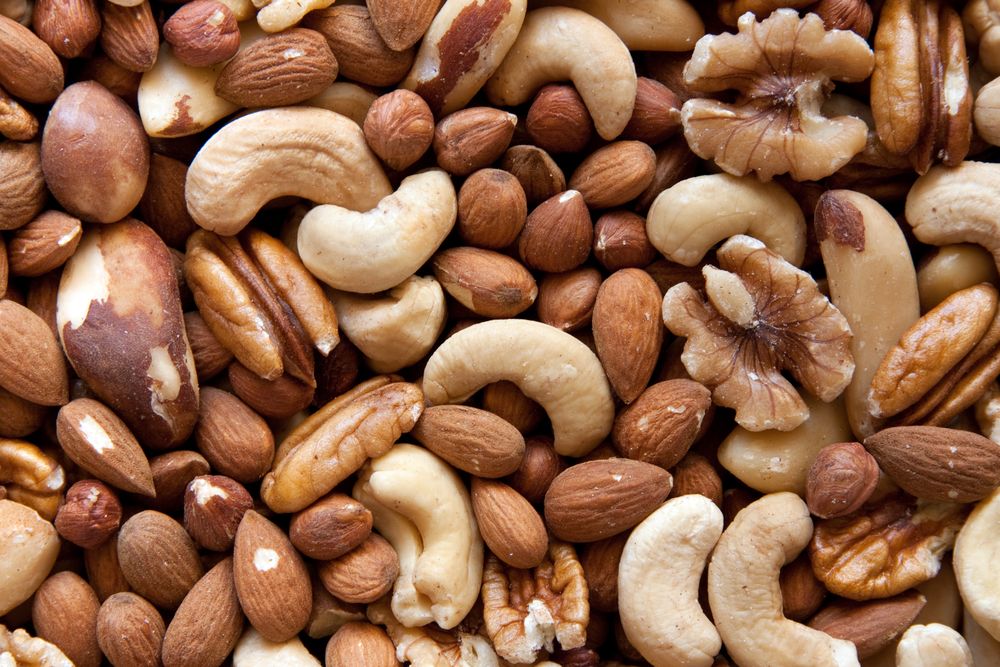Kids Are Eating Nuts, Despite Rise in Allergies

About one-third of U.S. children and teens eat nuts on any given day, mostly in the form of seeds and nut butters, according to a new government report.
The report, which is based on a national survey, found that 32 percent of children ages 2 to 19 ate nuts on any given day between 2009 and 2012.
About 40 percent of the nuts that kids ate were from a single product, like seeds or peanut butter. About 34 percent of nuts consumed were ingredients in grain-based foods like breads, cakes, cereals and nutrition bars, and 19 percent were ingredients in candy bars, the study found.
Experts say that's good news, as long as the nuts are not part of junk food.
Including nuts in children's diets "can be a good thing, provided the ways in which it is included are healthy forms," said study co-author Kirsten Herrick, of the Centers for Disease Control and Prevention. [9 Snack Foods: Healthy or Not?]
Nuts can be a source of protein, and are high in "good" fats and fiber, the researchers said. Some nuts, like walnuts and pumpkin seeds, are also good sources of omega-3 fatty acids, the researchers said.
Stephanie Quirantes, a nutritionist at Nicklaus Children's Hospital in Miami who was not involved in the study, said she was "pleasantly surprised" by the findings, particularly the finding that the majority of nuts consumed by kids are in the form of single products like seeds.
Sign up for the Live Science daily newsletter now
Get the world’s most fascinating discoveries delivered straight to your inbox.
"You typically don't see kids snacking on nuts, [but] it's a great way for them to get an alternative protein source," Quirantes said.
Some people have suggested that the rise in nut allergies in children might make some parents hesitant to feed their children nuts. Although more studies are needed over time to see if children are eating less nuts, Quirantes said the portion of children eating nuts in the study was actually higher than she expected. "I think [parents are] not as fearful as we may have thought they would be," Quirantes said.
Indeed, there's a lack of evidence showing that exposure to nuts early in life — even among kids at high risk for developing nut allergies — leads to an increased risk of allergies. In fact, recent studies suggest the opposite: A study published last year found that, if infants are at high risk for peanut allergies, feeding them peanut butter may protect them from developing the allergy.
It's important to note, however, that although nuts are nutritious, they are high in calories and, as such, should be eaten in moderation, Quirantes said.
Follow Rachael Rettner @RachaelRettner. Follow Live Science @livescience, Facebook & Google+. Original article on Live Science.

Rachael is a Live Science contributor, and was a former channel editor and senior writer for Live Science between 2010 and 2022. She has a master's degree in journalism from New York University's Science, Health and Environmental Reporting Program. She also holds a B.S. in molecular biology and an M.S. in biology from the University of California, San Diego. Her work has appeared in Scienceline, The Washington Post and Scientific American.










